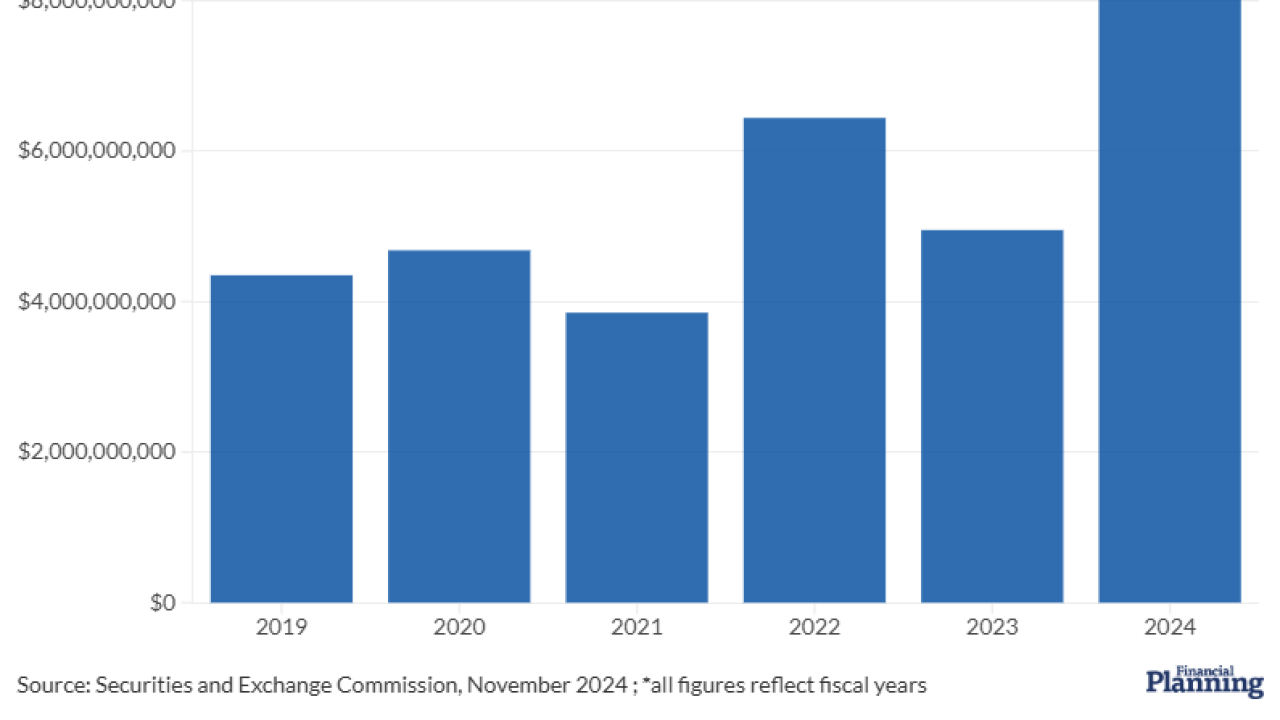The ability to make choices is the pillar of a free market economy. But when it comes to the Internal Revenue Services' new tax reporting requirements, choices will mean plenty of additional operational and technological headaches for mutual fund companies over the next year.
Mutual funds will be "dealing with soup to nuts changes in books of records, tax reporting systems as well as customer interfaces and communications," said Nico Willis, chief executive of Networth Services, a Phoenix, Az.-based software firm specializing in tax-lot accounting.
At the core of the changes will be cost-basis reporting. Beginning Jan. 1, 2011, brokerage firms, mutual fund companies, custodian banks and transfer agents have been required for the first time to track and report the cost of an equity securities transaction to both the IRS and the investor. Although some firms did so previously, it was only on a voluntary basis and they did not have to guarantee the accuracy of the information.
For mutual funds, the regulations come into effect on Jan. 1, 2012, and for debt instruments, options and other securities on Jan. 1, 2013. Firms may voluntarily decide to follow the rules for securities accounts opened prior to those dates.
Knowing just which accounts must fall under the new cost-basis reporting rules and those which don't is far more difficult than knowing the year in which the investor opened the account.
"Some exchange-traded funds will be eligible for cost-basis reporting as regulated investment companies for cost basis purposes, which means the Jan. 1, 2012 effective date and averaging basis method is available," said Stevie Conlon. senior director and tax counsel at Wolters Kluwer Financial Services, which provides the Gainskeeper cost-basis reporting service. "Others will be treated as stock subject to the earlier Jan. 1, 2011 effective date and will not be eligible for averaging."
End result: operations executives at mutual fund companies and their transfer agents will have to read all offering documents and make these determinations.
For starters, mutual funds and their transfer agents must link their corporate actions platforms, sub-accounting systems, securities master files and order management systems.
The year-end tax reporting system must also be linked to the tax lot system so that identical results can be produced on forms sent to the investor and the IRS.
Such integration can take at least four to six months to accomplish, even if the tax lot reporting software offers its own programming hooks, known as application programming interfaces. That's because of the need to analyze, map and test every data point in a firm's books and records.
Buying new software to calculate the correct number for the original cost of a tax lot of shares is just the tip of the iceberg in preparations.
Mutual funds, which have always relied on average cost accounting, now must give investors the option of deciding which tax lot accounting methodology to use. A customer can select first-in-first out accounting, average cost or the specific identification approach, which allows them to first sell the lot of securities that means paying the least amount of taxes.
The investor can also change his or her mind and later select different methodologies for different accounts registered under the same name even after a mutual fund company first selected the mechanism it wants to use.
The flexibility and duration of the selection process will add time and costs to adapting IT systems. Providing multiple sale methodologies will require lots of coding changes.
"Mutual fund platforms were coded to provide only average cost accounting, and now they will have to adjust to a variety of cost-basis methodologies," said Cameron Routh, senior vice president of strategic products at Scivantage, a technology provider in Jersey City, N.J. "They must also be able to segregate between eligible and non-eligible accounts under the new regulations as well as covered and non-covered activity within the eligible accounts."
Technical changes aside, mutual funds and their transfer agents will have to deal with plenty of customer inquiries. A study by research firm Tower Group in early 2010 estimated that a firm with one million customer accounts could receive 150,000 or more annual calls from customers. With each call costing the equivalent of $7, the additional expense could come to more than $1 million a year.
"Customers will start asking which cost-basis methodology to use as well as which of their accounts are covered," Conlon said. "The dilemma will be for firms to provide sufficient customer support without providing answers that can be construed as tax advice."
Just as difficult as answering questions on which cost-basis methodologies to use will be understanding that some purchases and sales of mutual fund assets can trigger wash sales.
"The IRS will also require mutual funds to handle and report complicated violations of wash sales which involve sales from fractional shares and automatic dividend reinvestments," Willis said.
"Some of the sales of shares in a mutual fund account might be disallowed as a tax loss due to the wash sale rule," Conlon said. "A disallowed loss likely means a lot of unhappy investors calling up a mutual fund or its transfer agent asking for the wash sale to be deleted so that the investor can take the loss."
Bottom line: when complying with the new requirements, a mutual fund and its transfer agent need to combine technological prowess with correct communications. And start preparing early.
"It's not just about focusing on IT changes but also operational preparedness and shareholder and fund communications," said Joan Dowd, chief compliance officer for Boston Financial Data Services in Quincy, Mass. "We expect the influx of investor calls to come in after the letters are sent throughout this year and in early 2012 when the first new tax reports are mailed."
A transfer agent for more than 100 mutual fund complexes representing more than 25 million accounts, Boston Financial created a virtual swat team back in the fall of 2009 of senior ranking operations, compliance and IT executives, who meet monthly.
Boston Financial has trained all of its associates on the basics of cost-basis reporting through in-house developed training modules, including an online course. The transfer agent is also helping its mutual fund clients prepare the necessary communications to investors explaining the new regulations and train their operations and shareholder services experts to respond to technological changes and customer calls.





